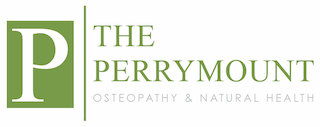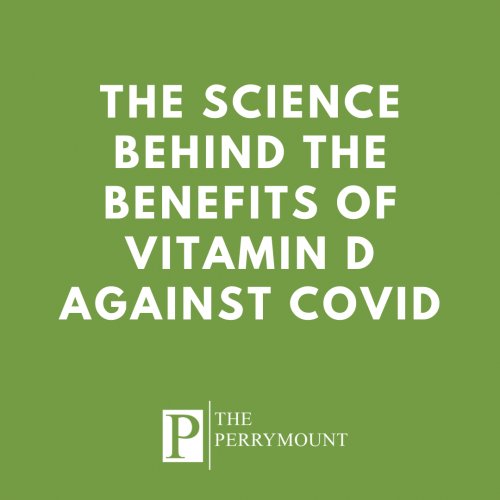Vitamin D Basics
Often referred to as ‘the sunshine vitamin’, Vitamin D is created when sunlight touches the skin. Think not much sun in the UK in the winter! The positive effects of this vitamin on healthy bones have long been recognised. What’s now becoming apparent is the many other ways it supports good health.
Unfortunately, modern lifestyles mean that, for many, levels of this vital nutrient within the body have dramatically dropped and Public Health England now recommend everyone in the UK take vitamin D supplements in the autumn and winter. Our vitamin D supplements use the D3 form of vitamin D - the body's preferred form.
What does vitamin D do?
Vitamin D contributes to numerous biological functions in the body, including:
✓ Normal function of the immune system
✓ Maintenance of normal muscle function
✓ Cell division
✓ Maintenance of normal bones
✓ Normal utilisation of calcium and phosphorous
Where does Vitamin D come from?
What many people don’t realise is that very few foods naturally contain vitamin D. Wild, oily fish is by far the best dietary source, followed closely by fortified milk and egg yolks, but you certainly cannot rely on food to provide you with optimal amounts of vitamin D on a daily basis. In fact, the major source (80 – 100%) of vitamin D is actually the sun! Vitamin D is made in the body when bare skin comes into contact with the sun’s UVB rays.
Read the full article on Nutri's website here. It's very informative and gives all the most important facts:
https://www.nutriadvanced.co.uk/news/vitamin-d-the-facts/
This article gives a round-up of research that is related to Vitamin D and Covid-19 and is really fascinating
https://www.nutriadvanced.co.uk/news/vitamin-d-and-covid-19-a-round-up-of-the-latest-research/
C*ronavirus: Vitamin D reduces infection and impact of C*V*D-19, studies find
Vitamin D sufficiency, a serum 25-hydroxyvitamin D at least 30 ng/mL reduced risk for adverse clinical outcomes in patients with C*V*D-19 infection
Background To investigate the association between serum 25-hydroxyvitamin D levels and its effect on adverse clinical outcomes, and parameters of immune function and mortality due to a SARS-CoV-2 infection. Study design The hospital data of 235 patients infected with C*VID-19 were analyzed. Results Based on CDC criteria, among our study patients, 74% had severe C*VID-19 infection and 32.8% were vitamin D sufficient. After adjusting for confounding factors, there was a significant association between vitamin D sufficiency and reduction in clinical severity, inpatient mortality serum levels of C-reactive protein (CRP) and an increase in lymphocyte percentage. Only 9.7% of patients older than 40 years who were vitamin D sufficient succumbed to the infection compared to 20% who had a circulating level of 25(OH)D< 30 ng/ml. The significant reduction in serum CRP, an inflammatory marker, along with increased lymphocytes percentage suggest that vitamin D sufficiency also may help modulate the immune response possibly by reducing risk for cytokine storm in response to this viral infection.
Conclusion Therefore, it is recommended that improving vitamin D status in the general population and in particular hospitalized patients has a potential benefit in reducing the severity of morbidities and mortality associated with acquiring C*VID-19.
https://journals.plos.org/plosone/article?id=10.1371/journal.pone.0239799
60% higher rates of C*vid 19 amongst those with low Vitamin D levels.
Vitamin D determines severity in C*VID-19 so government advice needs to change, experts urge
Researchers point to changes in government advice in Wales, England and Scotlandhttps://www.sciencedaily.com/releases/2020/05/200512134426.htm
Association of Vitamin D Status and Other Clinical Characteristics With C*VID-19 Test Results
Findings In this cohort study of 489 patients who had a vitamin D level measured in the year before C*VID-19 testing, the relative risk of testing positive for C*VID-19 was 1.77 times greater for patients with likely deficient vitamin D status compared with patients with likely sufficient vitamin D status, a difference that was statistically significant.
https://jamanetwork.com/journals/jamanetworkopen/fullarticle/2770157
SARS-CoV-2 positivity rates associated with circulating 25-hydroxyvitamin D levels
In conclusion, SARS-CoV-2 NAAT positivity is strongly and inversely associated with circulating 25(OH)D levels, a relationship that persists across latitudes, races/ethnicities, sexes, and age ranges. Our findings provide further rationale to explore the role of vitamin D supplementation in reducing the risk for SARS-CoV-2 infection and C*VID-19 disease. If controlled trials find this relationship to be causative, the implications are vast and would present a cheap, readily-available method for helping prevent infection, especially for those with vitamin D deficiency. This could be of increased importance for the African American and Latino community, who are disproportionately affected by both C*VID-19 and vitamin D deficiency. In the interim, the authors recommend responsible vitamin D supplementation based on personal needs, risk factors, and advice from personal physicians in accordance with existing Endocrine Society Guidelines [23].
https://journals.plos.org/plosone/article?id=10.1371/journal.pone.0239252
Click on our shop link in the top menu to see our range of Vitamin D



